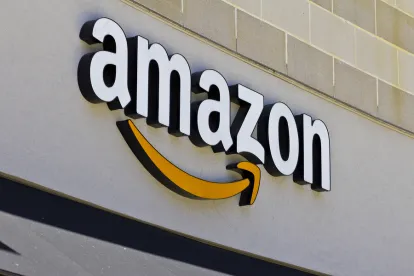On August 19, the Ninth Circuit delivered the latest guidance in the long-running debate over the Federal Arbitration Act’s (FAA) scope. It held that Amazon delivery drivers can move forward with a nationwide class action — in court, not arbitration — because they fall within the FAA’s transportation worker exemption.
The case, Bernadean Rittmann v. Amazon.com, Inc., et al, Case No. 19-35381, dealt with a “last mile” delivery driver through Amazon’s app-based delivery program, Amazon Flex (AmFlex), who occasionally crossed state lines, but completed most deliveries intrastate. Upon starting work, the driver signed an agreement requiring him to bring claims against Amazon in arbitration.
The FAA, however, excludes transportation workers “engaged in foreign or interstate commerce” from its coverage, meaning that companies seeking to enforce arbitration agreements against such workers face an uphill climb in relying on pro-arbitration precedent that has steadily flowed from the Supreme Court for nearly a decade.
In addressing whether the drivers fell within this exemption, the panel focused on Amazon's argument that transportation workers must cross state lines to be "engaged in interstate commerce" for the purposes of the exemption's application. In doing so, the panel first looked to the ordinary meaning of the terms "engaged" and "commerce" at the time Congress enacted the statute. "The ordinary meaning of those words," the panel explained, "does not suggest that a worker employed to deliver goods that originate out-of-state to an in-state destination is not 'engaged in commerce' any less than a worker tasked with delivering goods between states." Op. at 12.
The opinion marked the latest word on an issue that has generated significant attention among federal courts of appeals. The Ninth Circuit generally aligned itself with the First Circuit, which similarly held that AmFlex delivery drivers fall within the transportation worker exemption in Waithaka v. Amazon.com, Inc., 966 F.3d 10 (1st Cir. 2020). Notably, however, the panel distinguished recent cases involving gig-economy delivery services from the case before it. Those cases, the panel reasoned, differ because prepared meals from local restaurants, for example, are not a type of good that are "indisputably part of the stream of commerce." Op. at 23-24. In particular, it discussed the Seventh Circuit’s recent opinion in Wallace v. Grubhub Holdings, Inc., 2020 WL 4463062 (7th Cir. 2020), holding that Grubhub drivers, who deliver takeout orders from local restaurants, are not covered by the § 1 exemption because the focus of the § 1 inquiry is "on the worker's active engagement in the enterprise of moving goods across interstate lines." Id. at *2. "Put differently,” the Seventh Circuit explained, “a class of workers must themselves be 'engaged in the channels of foreign or interstate commerce.’" Id. at *3 (quoting McWilliams v. Logicon, Inc., 143 F.3d 573, 576 (10th Cir. 1998) (emphasis added). "Unlike in Wallace," the panel reasoned, "AmFlex workers complete the delivery of goods that Amazon ships across state lines and for which Amazon hires AmFlex workers to complete the delivery." Op. at 24.
The debate over the scope of the transportation worker exemption will likely continue, as courts grapple with the exemption’s scope in a mobile economy increasingly reliant on evolving methods of delivering goods. For now, however, the Ninth Circuit’s opinion provides solid guidance to companies, especially those operating in California.





 />i
/>i
